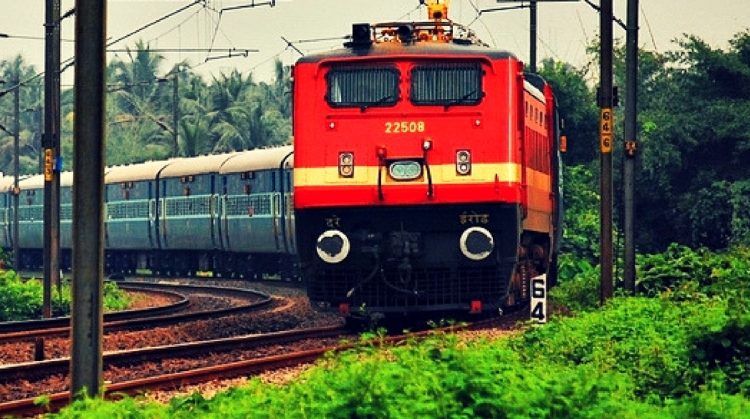INTRODUCTION:
The High Court of Bombay passed a judgement on 07 June 2023. In the case of SMT. KAMLABAI WD/O MAHADEORAO RAUT Vs UNION OF INDIA, THROUGH ITS GENERAL MANAGER, CENTRAL RAILWAY, MUMBAI CST IN FIRST APPEAL NO. 1009 OF 2019 which was passed by a single bench comprising of HONOURABLE SHRI JUSTICE MUKULIKA SHRIKANT JAWALKAR, the Appellate Court reviewed and overturned the decision of the Railway Claims Tribunal, Nagpur Bench, in a claim application related to an untoward incident on a passenger train. The case involved the tragic death of an individual who fell from a running train, and the appellant, the mother of the deceased, sought compensation for the loss. This blog post provides an overview of the case, highlights the key arguments and findings that led to the successful appeal, and explores the relevant laws governing railway accident compensation.
FACTS:
On January 28, 2015, the deceased individual was traveling on Amravati-Nagpur Passenger Train No. 51261 from Badnera to Dhamangaon. Due to overcrowding, the deceased fell from the running train near the Pulgaon Railway line, resulting in his untimely death. The appellant, the mother of the deceased, filed a claim before the Railway Claims Tribunal, seeking compensation of Rs. 4,00,000/- for her son’s demise.
TRIBUNAL’S DECISION:
The Railway Claims Tribunal dismissed the claim, stating that the mere finding of the deceased’s body near the track and the recovery of a ticket were insufficient to establish that the deceased was a bona fide passenger. The tribunal held that there was a lack of eyewitness testimony and did not consider the circumstantial evidence presented.
APPELLANT’S ARGUMENTS:
The appellant contended that the tribunal erred in dismissing the claim based on the absence of an eyewitness. She asserted that the deceased was a bona fide passenger, as evidenced by the journey ticket found with the body. Furthermore, she argued that the police documents, the nature of the injuries sustained, and the probable cause of death supported her claim.
APPELLATE COURT’S FINDINGS:
After carefully considering the submissions and reviewing the evidence, the Appellate Court reached several significant conclusions. The court noted that a valid journey ticket from Badnera to Dhamangaon was recovered from the deceased, establishing that he had purchased the ticket shortly before the train’s departure from Badnera. The court also highlighted discrepancies in the station manager’s mention of the time when the body was found, concluding that it was highly improbable for the deceased to have reached Pulgaon before the train’s arrival.
The court emphasized that the possession of a valid ticket implied that the deceased was a bona fide passenger and had fallen from the train at Pulgaon. It criticized the tribunal’s failure to appreciate these facts and ruled that the order passed by the tribunal was erroneous and perverse.
Laws Involved: The compensation awarded in railway accident cases is governed by the Railway Accidents and Untoward Incidents (Compensation) Rules, 1990. These rules provide a framework for determining the compensation amount based on the nature of the incident and the resulting injuries or loss of life.
JUDGMENT AND COMPENSATION AWARD:
In light of the schedule to the Railway Accidents and Untoward Incidents (Compensation) Rules, 1990, the court awarded compensation of Rs. 8,00,000/- (Eight Lakhs) to the appellant, acknowledging the death of her son, Mahadeorao Raut. The Union of India was directed to deposit the awarded amount into the claimant’s account within three months.
CONCLUSION:
This appellate judgment highlights the importance of carefully evaluating the evidence presented in railway claims cases and considering the relevant laws governing compensation. It emphasizes that circumstantial evidence, such as possession of a valid ticket, can be crucial in establishing the status of the deceased as a bona fide passenger. By overturning the initial decision, the Appellate Court ensured that the appellant received the compensation she deserved for the untimely loss of her son, in accordance with the Railway Accidents and Untoward Incidents (Compensation) Rules, 1990.
“PRIME LEGAL is a full-service law firm that has won a National Award and has more than 20 years of experience in an array of sectors and practice areas. Prime legal fall into a category of best law firm, best lawyer, best family lawyer, best divorce lawyer, best divorce law firm, best criminal lawyer, best criminal law firm, best consumer lawyer, best civil lawyer.”
JUDGEMENT REVIEWED BY VETHIKA D PORWAL, BMS COLLEGE OF LAW


